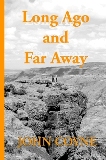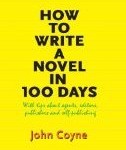Novel Writing 101–What Genre Is Your Novel? #1
Novel Writing 101
Session One
This short series of blogs will be on writing your novel. Over the next few weeks, I’ll post Novel Writing 101, blogs on writing and publishing your novel. All of you who were smart enough to major in business or international affairs or science while in college now have a chance to take an on-line creative writing course. If you are thinking of writing a novel, here’s a quick course ( no credits, but it is free!) on how you might go about writing your book. We will begin with What Genre Is Your Novel?
What Genre Is Your Novel?
We’re all drawn to certain genres. In fact, some of us only read one type of novel. What are the books that you read? There are basically two types of fiction when it comes to novels: Genre Fiction and Literary Fiction. We’re going to focus on what I write—Genre Fiction. That means:
- Mystery
- Saga
- Horror
- Romance
- Western
- Fantasy
- Science Fiction
Genre fiction can also be literary fiction, but we’re not going to get into a literature class; we are going to focus on writing your novel. Some literary critics think genre fiction isn’t of value. It’s not ‘serious’. Fine, they don’t have to read our books. We’ll go ahead and write our novels. We’ll write our novels for readers who read for pleasure, entertainment, and a chance, if only briefly, to escape from their daily lives. The most popular genre novels are mysteries.
We have, as you may know, 13 types of mysteries. Everything from what is called ‘cozy’ stories to the Caper novel. A ‘Cozy” novel is, for instance, where this nice little old lady solves a murder without a lot of fuss or bloodshed. The Caper novel, however, has a cool calculating criminal, or a comic bungler who carries the novel along on humor. There are other types of mysteries. The Police Procedural, for example. This type emphasizes police operations where the author has done deep research into the details of police work. By the way, if you are writing this sort of novel, you might want to pick up a copy of this new book, 400 Things Cops Know: Street-Smart Lessons from a Veteran Patrolman. It’s a book that shows police work from the inside. Next, we have the Legal and or Medical mysteries. To write these you need to have the background (or do the heavy research) of a criminal lawyer or the medical profession to make the novel work, but if you have this experience, go for it. There’s a huge readership waiting to be entertained. Our own Phillip Margolin (Liberia 1965-67) is a successful writer of such criminal novels. Add to these types, suspense mysteries. They can be either a romance suspense, such as you have with Mary Higgins Clark, or the historical novel where a true event from the past is blended into a murder in some way. And there is the straight forward crime novel. The suspense for the reader comes from wondering if the bad guys will get away with murder. This novel is a no-frills plot with quick action, and perhaps with bad guys who are smart, organized, and daring. And the reader is pulling for them.
To sum up we have thrillers, whodunits, mysteries, crime fiction, and detective fiction: all of these, separately or interchangeably, describe basically the same thing. They are essentially referring to an overall genre, the mystery or crime story. How do you know you are writing a mystery? Easy. If it’s got a dead body in the plot, it’s a mystery.
Other Genre Novels
There is the science fiction and fantasy novel. These books are wonderful creative pieces of writing. You might have grown up reading Ray Bradbury or Arthur Clarke. If not science fiction, then occult/horror novels, which I know something about, having written a half dozen such novels. The first novel I wrote was entitled, The Piercing. It was published in 1979, a year or so after Stephen King’s novel Carrie exploded onto the best seller list. This was the rise of the horror/occult decade. First we had Rosemary’s Baby, then the Exorcist, in 1971, and three years later, Stephen King’s Carrie. These novels were followed by many other fine writers of horror/occult fiction: Dean Koontz, Paul Wilson, and Peter Straub. They were the brand names of the genre in those early years.
What is the appeal of horror novels you might ask? Well, generally evil characters are much more interesting to write and read about than good characters. There’s a certain amount of fun in writing about unpleasantness and the people responsible for it. Hemingway said that the interesting thing to do in fiction is to take a character and put him up against the wall-put him in a critical situation and see what he does. Horror fiction offers some pretty extreme critical situations-extreme in the sense of being even life-threatening. It offers a set of conventions that allow a character to be challenge in a way that threatens perhaps everything he believes in–very basic things, including his or her grip on reality.
As a writer of horror/occult novels, you are interested in seeing what characters will do when confronted by evil-not something as trivial as losing a job or a boyfriend, that sorts of things is what mainstream fiction is about. Horror/occult fictions offers dark, unfathomable evil, evil that is cruel and random in the way it frightens and inflicts pain. This genre is not easy to write. Stories of this sort demand the highest standards of writing, in creating strong, believable characters, a vividly believable setting, a powerful atmosphere, and a convening portrait of evil. If all these thing are not down extremely well, the story won’t work. Worlds away from those occult novels, are other genre novels that I have written.
My one saga, Brothers & Sisters, is a family history that covers two generation, in Ireland and the American Midwest. This ‘epic’ epic novel is a work in which the members or generations of a family or group are chronicled in a long and leisurely narrative. This novel has two distinct era. It opens in 1982 in Illinois in Book One, and then goes back in time to 1940 and Dublin, Ireland in Book Two and WWII. These two times and places connect and the narrative of the novel follows the family through two generations. What is important in such novels is that the action relate to historical events and the settings and characters are true to the times.
The three novels that I’ve written which focus on golf are their own sub-genre. Sports in a novel came be more than just a metaphor; they can be the whole book. Whatever the sport, what you must do as a writer is make sure the facts are accurate, the history is correct, and the game is played is right. You’re audience are people who play the sport.. They know if you have gotten something wrong. If you get it wrong, they stop reading.
My most recent novel has a Peace Corps connection. It is entitled, Long Ago And Far Away and, I guess, for want of a better term, I would call it a romance novel, a love story that follows a mystery as it follows the lives of two people who meet in their early twenties, become lovers, and then are split apart because of a tragedy and over the next forty years live separate and eventful lives before coming back together again. The novel is set in the U.S., Spain and Ethiopia, and is told from two points of view. Adding to that, the narrative is not told in a logical order but goes back and forth in time. In upcoming sessions, I’ll talk more about this novel and its narrative structure, but I just want to make one other point. One of the satisfying things about writing genre novels is that you have a reading audience waiting to read your book. As we all know, it is not easy to write a novel and we all want someone to read it, something besides our family and friends, and it is nice to know we are writing for a predetermined audience. Having said all of this about the types of genres we have, let me just add one other point—Don’t worry about what genre your novel fits into…..write your book. If it is well written and interesting, it will and find a home and waiting readers. For a long and fuller presentation, you might want to buy the book or go to www.skillshare.com or check out my video (its free) How To Write A Novel In 100 Days.
I would call it a romance novel, a love story that follows a mystery as it follows the lives of two people who meet in their early twenties, become lovers, and then are split apart because of a tragedy and over the next forty years live separate and eventful lives before coming back together again. The novel is set in the U.S., Spain and Ethiopia, and is told from two points of view. Adding to that, the narrative is not told in a logical order but goes back and forth in time. In upcoming sessions, I’ll talk more about this novel and its narrative structure, but I just want to make one other point. One of the satisfying things about writing genre novels is that you have a reading audience waiting to read your book. As we all know, it is not easy to write a novel and we all want someone to read it, something besides our family and friends, and it is nice to know we are writing for a predetermined audience. Having said all of this about the types of genres we have, let me just add one other point—Don’t worry about what genre your novel fits into…..write your book. If it is well written and interesting, it will and find a home and waiting readers. For a long and fuller presentation, you might want to buy the book or go to www.skillshare.com or check out my video (its free) How To Write A Novel In 100 Days.

No comments yet.
Add your comment